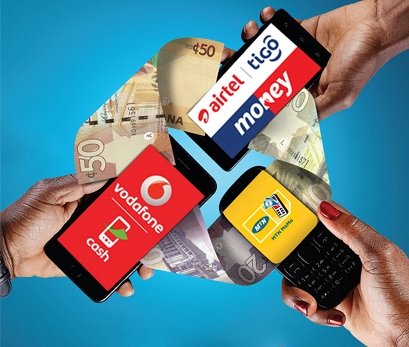Across Ghana, the adoption of digital financial services is reshaping how individuals—particularly women—interact with money. The rise of mobile-to-account and account-to-mobile transactions is breaking down long-standing barriers to financial inclusion, enabling more women to participate in the formal banking system.
As the world marks International Women’s Day, it is worth examining how mobile banking solutions such as GhanaPay are creating new economic opportunities for women, allowing them to save, invest, and conduct business with greater ease.
From cash dependency to financial autonomy
For decades, many women in Ghana—especially those in the informal sector—have relied on cash transactions for business and household management. This reliance on cash has historically limited their ability to build financial histories, access credit, or leverage the security and growth opportunities that formal banking provides. Mobile banking services, however, are now bridging this gap, offering women the flexibility to move money seamlessly between mobile wallets and bank accounts.
GhanaPay, a bank-led mobile money service, is a prime example of this shift. Unlike telecom-driven mobile money solutions, GhanaPay directly links users to banks, allowing them to deposit and withdraw funds with minimal friction. More importantly, it eliminates service fees for transfers, making it a cost-effective alternative for women who manage tight household budgets or small-scale enterprises.
Access without barriers
One of the most significant obstacles to women’s financial inclusion has been the accessibility of banking services. Many women, particularly in rural areas, face challenges such as the distance to bank branches, lack of documentation, and cultural barriers that have historically excluded them from the formal financial sector.
GhanaPay and similar services address these challenges by allowing women to:
Register for a GhanaPay mobile money wallet using just a mobile phone number and a Ghana Card—linking it to any bank account.
Choose from multiple registration options, including self-registration via mobile app, enrollment at designated agents, or onboarding at bank branches.
Move money between their GhanaPay mobile money wallets and bank accounts seamlessly, enabling them to build savings and access financial services previously out of reach.This accessibility is particularly important for market traders, artisans, and micro-entrepreneurs—many of whom are women—who often operate on thin margins and need quick, low-cost financial solutions.
Beyond transactions – a gateway to financial growth
While Ghanapay mobile money has long provided a convenient way to send and receive payments, its real impact on women’s financial empowerment lies in the ability to transition from simple transactions to wealth-building tools. Mobile-to-account and account-to-mobile services are a critical component of this evolution.
By linking GhanaPay mobile money wallets to bank accounts, women gain access to:
Savings accounts: Unlike traditional mobile money balances, GhanaPay mobile money wallets earn interest on end-of-day balances, allowing women to grow their savings over time.
Business expansion: Entrepreneurs can use GhanaPay mobile banking to receive digital payments from customers, reducing reliance on cash and improving financial record-keeping.
Cost efficiency – a game-changer for women
One of the standout features of GhanaPay mobile money services is its cost efficiency. While many mobile money services charge transaction fees, GhanaPay enables free money transfers—except for mandatory e-levy deductions—removing a major cost barrier for users.
For women who engage in frequent transactions—whether sending school fees, paying for supplies, or distributing wages—these savings can be substantial over time. Additionally, the ability to move funds between GhanaPay mobile money wallet and a bank account without incurring charges encourages more women to maintain formal savings, rather than keeping cash in circulation.
Challenges to adoption
Despite the advantages of mobile banking, several challenges remain.
Digital literacy: Many women, particularly in rural areas, are still unfamiliar with mobile banking features.
Trust issues: Some women remain hesitant to transition from cash to digital platforms due to concerns about fraud and security.
To maximize adoption, financial institutions and policymakers must invest in targeted financial literacy programs to educate women about the safety, benefits, and functionality of GhanaPay mobile money banking services
Looking ahead – the future of women in digital finance
As mobile banking continues to evolve, its role in women’s financial empowerment will only grow. Services like GhanaPay are already shifting the narrative, offering women the tools to manage money more effectively, plan for the future, and integrate into the broader economy. However, achieving true financial inclusion requires a multi-pronged approach. Banks must continue to refine their services to meet the unique needs of women, while policymakers must ensure that regulations support digital finance expansion without creating unnecessary barriers.
This International Women’s Day, the focus must remain on financial access as a key driver of gender equality. Mobile-to-account and account-to-mobile banking solutions are not just about convenience—they are about creating a system where women, regardless of income level or location, have the power to control their financial destinies.
Conclusion
The shift from cash-based transactions to mobile banking represents more than just technological progress; it signifies a fundamental change in how women engage with financial systems. By integrating GhanaPay mobile money with formal banking, women in Ghana can transact, save, and invest with greater security and flexibility. As the digital finance landscape expands, ensuring that women are not just participants but active beneficiaries must remain a priority. The tools are in place—now, it is about ensuring access, building trust, and fostering the confidence for women to take full advantage of the financial opportunities ahead.
 The GhIPSS 2021 half year performance report has shown that the GhQR and other new electronic services have started making gains. These electronic channels, including GhQR, ACH Direct Credit Near Real Time, GIP Debit pull, and Proxy Pay introduced by Ghana Interbank Payment and Settlement Systems (GhIPSS) cumulatively recorded 358,000 transactions in the first half of the year, representing 0.51 percent of total transactions processed by GhIPSS.
The GhIPSS 2021 half year performance report has shown that the GhQR and other new electronic services have started making gains. These electronic channels, including GhQR, ACH Direct Credit Near Real Time, GIP Debit pull, and Proxy Pay introduced by Ghana Interbank Payment and Settlement Systems (GhIPSS) cumulatively recorded 358,000 transactions in the first half of the year, representing 0.51 percent of total transactions processed by GhIPSS.
